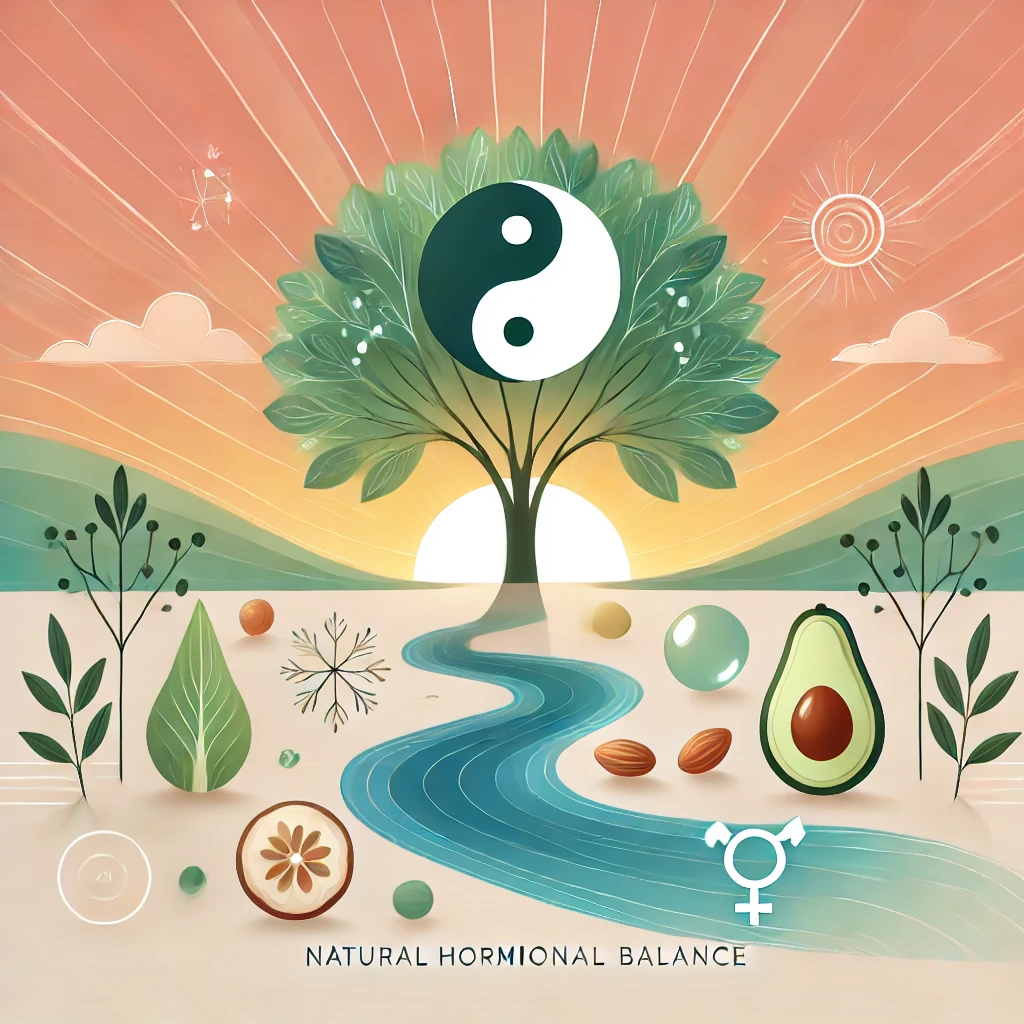Physical Address
304 North Cardinal St.
Dorchester Center, MA 02124
Physical Address
304 North Cardinal St.
Dorchester Center, MA 02124

Hormonal balance is something that many of us take for granted until we start experiencing the often-overlooked symptoms—fatigue, mood swings, weight fluctuations, and even anxiety. These subtle signs are often dismissed, but they are telling us something important: our hormones might be out of sync.
But don’t worry! Achieving hormonal balance naturally is entirely within your reach. In this ultimate guide, we’ll explore practical, science-backed strategies that will help you support your body in restoring harmony. Whether you’re dealing with stress, sleep disturbances, or dietary habits, small changes in your lifestyle can make a huge impact on how your body functions. Let’s dive in!

Hormones are the body’s chemical messengers, playing a crucial role in regulating numerous bodily functions—from metabolism and sleep to mood and reproductive health. When your hormones are balanced, you feel energized, emotionally stable, and in control of your health.
However, when your hormones are out of balance, even slightly, the effects can be drastic. This imbalance may cause physical symptoms like weight gain, irregular periods, or skin issues, but it also affects your mental well-being, contributing to stress, anxiety, and low mood.
Understanding hormonal balance is the first step toward fixing it. So, how can you achieve hormonal balance naturally?
Before we jump into the strategies for achieving balance, it’s important to identify the root causes of hormonal imbalances. Understanding these triggers will guide you in making the right lifestyle choices.
Your body is constantly influenced by the food you eat. Diets high in processed sugars, unhealthy fats, and low in essential nutrients can contribute to hormonal imbalance, affecting everything from your insulin levels to your thyroid function.
Stress is one of the most significant contributors to hormonal disruptions, primarily through elevated cortisol levels. Cortisol, known as the stress hormone, can interfere with other hormones like thyroid hormones, estrogen, and testosterone. Prolonged high levels of cortisol can lead to chronic fatigue, anxiety, and even weight gain.
Hormonal regulation is closely linked to sleep quality. Disruptions in your circadian rhythm, which controls your sleep-wake cycle, can cause imbalances in hormones like melatonin and cortisol.
Many everyday products—such as plastics, cleaning supplies, and personal care products—contain endocrine-disrupting chemicals. These chemicals can interfere with your hormones, leading to disruptions in metabolism, reproduction, and more.
Now that we understand the key causes of hormonal imbalance, let’s discuss the most effective ways to balance your hormones naturally. The following lifestyle changes are not quick fixes but sustainable habits that will serve you in the long term.
Your body needs the right fuel to function optimally. A nutrient-dense diet rich in whole foods can support your hormonal health by providing essential vitamins, minerals, and fats.
If you’re experiencing high levels of stress, it’s time to address it. Chronic stress can wreak havoc on your hormonal system. Regularly practicing stress management techniques can help lower cortisol and keep your hormones in check.
Sleep is one of the most powerful tools in achieving hormonal balance naturally. Sleep deprivation affects everything from cortisol to melatonin, which in turn disrupts the body’s overall hormone regulation.
While you can’t completely avoid exposure to environmental toxins, you can reduce your load by making a few simple changes.
Exercise is crucial for maintaining hormonal balance. Regular physical activity helps regulate insulin levels, improve thyroid function, and boost mood.
While natural methods are often effective in restoring hormonal balance, it’s important to recognize when to seek professional help. If you experience severe symptoms like irregular periods, excessive fatigue, infertility, or extreme mood swings, it may be time to consult an endocrinologist or healthcare provider who specializes in hormone health.
A healthcare professional can help assess your hormone levels and suggest treatments like hormone replacement therapy (HRT) or other medical interventions if necessary.
Achieving hormonal balance naturally is about making conscious, sustainable changes to your lifestyle. Whether it’s eating a nutrient-dense diet, managing stress, or prioritizing sleep, each step you take towards balance has a profound impact on your overall health.
Remember, this is a journey, not a race. Be patient with yourself and take small, manageable steps. Your body is incredibly resilient, and with the right habits, you can unlock its full potential, feel your best, and regain control over your hormones.